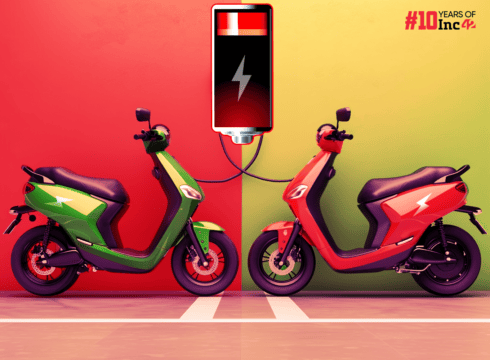The power ministry’s draft revised guidelines on charging infrastructure for EV proposes that the approval time in metropolitan areas will be cut from 7 days to 3 days
State nodal agencies and city authorities will carry out periodic mapping, at least once in every year, of the geographic distribution of potential EV charging demand
The move is a huge advantage for companies that have raised funds and built partnerships betting on setting up electric vehicle chargers on petrol hubs across the country’s landscape
Inc42 Daily Brief
Stay Ahead With Daily News & Analysis on India’s Tech & Startup Economy
The government has proposed new guidelines to reduce the approval time for power connection for electric vehicle charging stations.
As per ET, the power ministry’s draft revised guidelines on charging infrastructure for EV proposes that the approval time in metropolitan areas will be cut from 7 days to 3 days, and in municipal areas from 15 days to 7 days. In rural areas, the time will be reduced from 30 days to 15 days.
The views on the draft guidelines are to be submitted within 30 days.
The move is a huge advantage for companies such as Exponent Energy and BluSmart that have raised funds and companies like Tata Passenger Electric Mobility and Adani TotalEnergies E-Mobility building partnerships, and betting on setting up electric vehicle chargers on petrol hubs across the country’s landscape.
State nodal agencies and city authorities will carry out periodic mapping, at least once in every year, of the geographic distribution of potential EV charging demand, the report added.
It also added, the tariff for supply of electricity to EV charging stations is largely unchanged and is proposed to be a single part tariff and not exceed the ‘average cost of supply, till March 31, 2026.
When the proposal comes into force, it is likely that the demand for electric vehicles among consumers would rise, benefitting the EV makers and other energy tech companies involved in the sector.
At least one charging station shall be available in a grid of 1 km x 1 km in the urban limits by the financial year 2030, compared with 3 km X 3 km earlier, based on the proposed draft. It further said, one charging station shall be set up at every 20 km on both sides of highways and roads.
This comes at a time, where the Centre approved a new policy in March, under which electric vehicle companies would have to pay lower duty on imports of EVs if they agree to set up manufacturing facilities in the country and the policy is aimed at promoting EV manufacturing in India.
Meanwhile, Delhi NCR-based EV fleet management startup Zypp Electric raised INR 115.7 Cr in a fresh round of investment from Japanese energy giant ENEOS, in May.
{{#name}}{{name}}{{/name}}{{^name}}-{{/name}}
{{#description}}{{description}}...{{/description}}{{^description}}-{{/description}}
Note: We at Inc42 take our ethics very seriously. More information about it can be found here.


